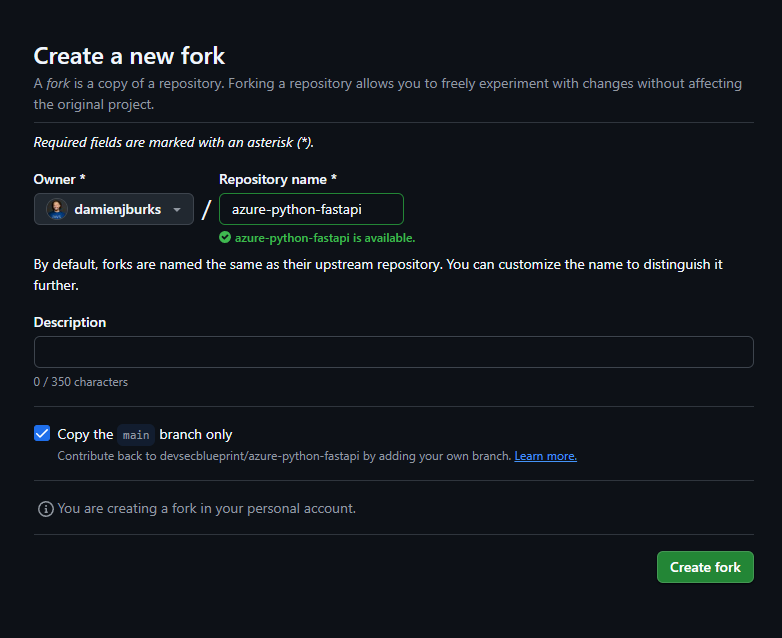Setting Up GitHub Repositories
Overview
Your pipeline relies on GitHub repositories to host both the application code and the infrastructure definitions. In this section, you’ll fork the required repositories into your personal GitHub account so you can make changes, push updates, and run the pipeline independently.
If you’re new to GitHub, it’s a web-based platform built on top of Git (a distributed version control system). It allows developers to manage code, track changes, collaborate, and contribute from anywhere in the world. For a quick primer, check out this Introduction to GitHub article.
GitHub offers free accounts, so you can get started without any upfront cost.
Prerequisites
Before proceeding, make sure you have a GitHub account.
- If you don’t already have one, follow this guide to create a GitHub account.
Configuration Steps
Forking Repositories
-
Log in to your GitHub account.
-
Navigate to the first project: Azure DevSecOps Infrastructure
-
Click the Fork button in the top-right corner.
-
Select your personal account as the Owner and click Create Fork.
-
Make sure the option Copy the main branch only is enabled.

-
-
Repeat the same steps for the second project:
-
Once forked, clone both repositories to your local machine. For example:
git clone https://github.com/<your-username>/azure-python-fastapi
git clone https://github.com/<your-username>/azure-devsecops-pipeline
Conclusion
That’s it! 🎉 You now have your own copies of the infrastructure and application repositories inside your GitHub account. With these set up, you’re ready to configure secrets and wire up your DevSecOps pipeline in the next steps.